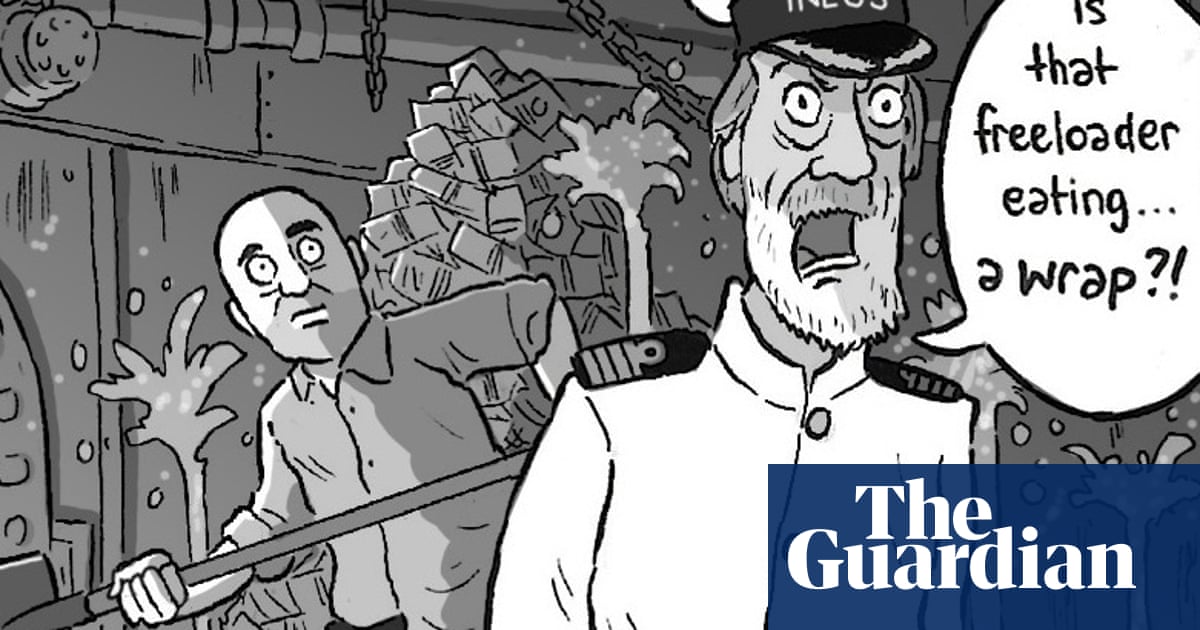While the editor of this hallowed section and I do not always agree, he has conceded that it’s almost Christmas – which is all the excuse I need for a quiz. So let’s play What Did Nigel Say? Read these broadsides from Westminster’s biggest names, and guess: which are from Nigel Farage?
1) Rishi Sunak was “the most liberal prime minister we’ve ever had on immigration”.
2) Mass immigration “happened by design, not accident”.
3) British government is “broken”.
4) The UK is a “one-nation experiment in open borders”.
5) The British state is wallowing in “the tepid bath of managed decline”.
We’ll come to answers in a moment, but first some context. Because in this season of long nights and tall tales, Westminster is telling itself a story. Here’s how it goes: the leader of the Reform party is the antithesis of mainstream politics. If Sir Keir Starmer KC embodies the SW1 establishment, then he and Farage are diametrically, genetically, vitriolically opposed. Knee-taking lefty against rightwing worshipper of Enoch Powell, arch-remainer v founding father of leave, stilted technocrat v primetime populist. So as the year ends and with it the first few months of a Labour government, the fact that Starmer is sinking while Farage is soaring should ring alarm bells about how our country may soon be overrun by dark forces.
This yarn offers much to satisfy its readers and its writers. It features a stammering hero and a charismatic rogue, a battle between good and evil, and a real sense of jeopardy. Yet it is profoundly wrong. Those storytellers are so fixated on personalities, they’ve got the politics about-face. Starmer isn’t just losing ground – he’s handing it to Farage.
Through his speeches, how he frames debates, and most of all in his shrugging acceptance of how limited and slow his political powers are, time and again the Labour leader makes Farage’s case for him.
Want an example? Go back to the five phrases at the top. A collection of nasties, I’m sure you agree. How many came from Nigel Farage?
None. Nor are they the work of Kemi Badenoch, Liz Truss or any other horror you care to think of. Each was said by Keir Starmer, most within the past few days. Britain’s progressive-in-chief claims that politicians and civil servants have deliberately allowed immigration to run rampant, and that the country has “open borders” to the rest of the world. He did this in a speech at the end of last month, which made not one positive reference to immigrants or migration. During the election campaign, he accused Britain’s first Asian prime minister of being “the most liberal” on immigration, sounding a dog whistle that could be heard by any follower of Farage. As far as I can see, hardly any commentator has picked him up for using such rhetoric – but to talk about migrants as only a burden to this country, here on a scam, is the kind of language that people like me are used to catching after last orders on streets that suddenly don’t feel so safe. To hear them from our prime minister should shame him and his party.
I can’t honestly imagine that a former human rights lawyer feels comfortable voicing such bigotry, let alone giving it the Downing Street stamp of approval. No doubt he’s been urged to do so by Labour strategists, whose chief concern is to woo “hero voters”, those who were once on the red team but long ago left to support Brexit or Boris Johnson or Farage. For the sake of an extra half point in the polls, Starmer’s team are quite happy to sacrifice basic decency.
Another quiz question: since Farage returned to Westminster this summer, how many times has Starmer ever reproved his race-baiting, his pernicious behaviour during the summer pogroms or how his party has become a beacon for roving BNP activists?
Answer: none, naturally. In this way, mainstream politics is focus grouped ever more rightwards.
Regular readers may know that I have been warning for a long time of the threat posed to British politics by Farage and the far right. When others treated him as a joke, I saw a menace. When I reported from south Wales on protests against asylum seekers, it was Farage’s spirit that I saw in ascendance. When Mr Brexit threw his fedora in the ring during the summer election, I wrote that it was the return of a dangerous virus.
For a virus to spread far and wide, mainstream politics has to be seen to be failing. And Starmer’s economics is almost ideal for Faragism to flourish. That’s why it was so dangerous for Labour to bet the house on growth, which will neither hit ministerial targets nor see its benefits shared out widely enough. That pledge has now been swapped for another on how household incomes will rise, even though what really matters is how far households are protected against high food and energy prices and housing costs. It’s also why it’s so shortsighted for the government to allow Royal Mail to fall into the hands of a Czech billionaire, and to let failed water companies hike bills by an eye-watering amount.
Behind all this lies an old theme, the same that helped get Gordon Brown booted out of power in 2010. It’s the idea that the main leftwing party in Britain, headed by a self-described socialist, will not use the full-blast powers of the state for the people on his side. Brown used the state to bail out bankers. Starmer will use it for developers and big infrastructure companies. And each time, Farage and his donors can point out how the party of the left won’t stick up for ordinary people, for workers, for the hard-pressed. Look at this lot, they’ll say, loading themselves up with free suits and specs and tickets to see Taylor Swift. Just wait until they are handing out contracts to their mates to throw up pylons and expensive flats.
Carry on like this and Starmer, our supposed last defence against Farage, will underline every saloon-bar gripe about how politics isn’t working and they’re all out for themselves. How does the nasty right win? When it faces many opponents, but no real alternative.
-
Aditya Chakrabortty is a Guardian columnist

 2 months ago
48
2 months ago
48













































